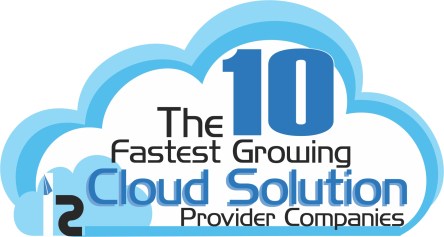Insights Success magazine recently named Yardi one of the “10 Fastest Growing Cloud Solution Provider Companies.” Insights Success focuses its coverage on emerging and quickly growing companies and their leadership. The honor capped year of esteemed recognition for Yardi’s continued service to clients and constant growth, “Yardi Systems is leveraging cloud technology to enhance both the consumer and professional experience with real estate engagement. Yardi is equipped with the resources to upgrade the technological aspect of nearly every real estate vertical,” stated the magazine’s coverage of the award. The recognition follows another major honor for Yardi in 2016. In September, the company was named to Forbes’ inaugural Cloud 100, the definitive list of the top 100 private cloud companies in the world, developed in partnership with Bessemer Venture Partners. Anant Yardi, founder and President of Yardi, was recognized for his pioneering efforts in the industry. Insights Success stated: “His vision is the driving force behind the development of effective and innovative software solutions for global real estate portfolio management.” Mr. Yardi was also named to the National Apartment Association’s Lifetime Achievement Award in 2016, where he is only the third inductee. About Insights Success Insights Success is the Best Business Magazine in the world for enterprises. It focuses distinctively on emerging as well as leading fastest growing companies, their confrontational style of doing business and way of delivering effective and collaborative solutions to strengthen market share. We talk about leaders’ viewpoints and ideas, latest products/services, and more. For more information, visit...
Ask IT
Four key questions
There’s no doubt that 2014 is going to be another big year of exciting enhancements in technology. Improved software, systems and products really came on the scene in 2013, and more improvements are sure to make our working and non-working hours more efficient, secure and fun in the months ahead. Last year we talked a lot about business intelligence, moving to the right type of cloud for your company, and ensuring adequate security for your valuable business data. These will continue to be important considerations in 2014. To find out what smart companies are thinking about for the year ahead, we checked in with Scott Wiener, Yardi Senior Vice President and head of our Clouds Services division. He’s a longtime technology veteran with his finger on the pulse of the latest enhancements and innovations. Scott helped us come up with these four key questions that any smart company – not just Yardi clients and real estate-related businesses – should be asking in the year ahead. 1. If I haven’t moved to the cloud, what am I concerned about? The options for cloud users are nearly endless, with service providers offering a wide range of options for network configuration, security, replication and access protocols. But some firms have resisted going cloud-based, despite myriad benefits. Partner with a company who has the experience and history of delivering the service; don’t trust the source ask what their safeguards are; how personally identifiable information (PII) is handled are just a couple of items you should be thinking of. You’re holding out, it might be time to get on the phone with your technology service provider and ask the hard questions. Fears about access limitations and being able to directly connect to your database aren’t good reasons to pass...
Managing Investments
In the private cloud
In a recent survey of cloud adoption trends within the investment management industry, respondents reported that despite concerns over security and adaptability, use of cloud services is widespread for investment firms, who are handling both basic business functions and financial applications hosting using cloud services. Moving to the cloud, rather than continued on-site hosting of applications and business data, is the common practice for businesses of all kinds that want to advance their information technology infrastructure and enjoy extreme flexibility, scalability and security. Investment management firms are no different, and may enjoy advantages within a cloud system when it comes to big data and business intelligence, redundancy of data, and application integration. Despite some questions about how receptive investors and clients would be to the use of cloud computing and worries about lack of custom application availability, moving to cloud hosting was the choice for nearly 90% of the investment management firms responding to the survey, which was conducted by an integration services provider. One predictive analysis forecast is that the cloud computing market will grow from $40.7 billion in 2011 to $241 billion in 2020, over several dozen distinct market segments. Other forecasts put that number significantly higher. Cloud services growth is expected to contribute to 14 million new jobs, worldwide, by 2015. Recently initiatives by Microsoft, GoDaddy, expansion by industry pioneers like Amazon, and an influx of venture capitalist funding have fast-tracked the private cloud market for major growth. This long-awaited innovation in computing has arrived as a cost and efficiency saver for companies of all sizes. Financial and investment management firms, including banks, sovereign wealth organizations, and government institutions are among those moving forward with use of private clouds. To alleviate concerns about security, most use a private cloud solution, though...
Personal Clouds
Are PC's now passe?
Personal clouds seem to be on everybody’s lips these days. Frequently referred to as the new era of personal computing, the clouds are indeed revolutionary, but what exactly are they and what can they do for us? Essentially, personal clouds are online services that allow consumers to store, share, synch, protect and stream data using multiple connected devices such as smartphones, media tablets and PCs over the internet. Gartner, Inc, a technology research and advisory firm known for delivering specialized insight on various IT areas, acknowledges the huge impact of personal clouds on individual users and expects it to replace the personal computer at the center of our digital lives by 2014. “Major trends in client computing have shifted the market away from a focus on personal computers to a broader device perspective that includes smartphones, tablets and other consumer devices,” Steve Kleynhans, research vice president at Gartner, said in a statement. “Emerging cloud services will become the glue that connects the web of devices that users choose to access during the different aspects of their daily life.” As a result, the future looks even brighter for technology developers. According to Gartner, consumers will spend approximately $2.2 trillion on digital technology products and services in 2012, or about 10 percent of the average disposable household income. By 2015, consumers are expected to spend around $2.8 trillion worldwide on connected devices, affiliate services and transferred contents. Regarded as a real breakthrough in the field of information technology, personal clouds promise to deliver smart solutions to experimented digital users. While consumer needs are extremely varied and expectations differ greatly, the general requirements involve availability, security and access to personal contents without complications or restrictions. This is exactly what personal clouds aim to be, a reflection of...
Moving to the Private Cloud
With the Private Cloud, the Sky is Truly the Limit
What’s the next big move for companies wanting to keep their business’ IT infrastructure, applications, and support management in step with the latest trends? If your business is struggling with servers that are out of date or need to be replaced, or you just want to be more nimble and future-focused while maximizing cost-effectiveness, perhaps you’ve thought about moving your applications and data to a private cloud. The much-discussed clouds are the latest wave of advancement for information technology and best practice business management. One predictive analysis forecast that the private cloud computing market will grow from $40.7 billion in 2011 to $241 billion in 2020, over several dozen distinct market segments. Other forecasts put that number significantly higher. Cloud services growth is expected to contribute to 14 million new jobs, worldwide, by 2015. Recently initiatives by Microsoft, GoDaddy, expansion by industry pioneers like Amazon, and an influx of venture capitalist funding have fast-tracked the private cloud market for major growth. “Making the move to the private cloud will be the next big step for forward-thinking businesses who want to maximize their information technology efficiency,” said Scott Wiener, Senior Vice President of Information Technology for Yardi Systems. The options for cloud users are nearly endless, with service providers offering a wide range of options for network configuration, security, replication and access protocols. As your company prepares to move into the future, consider the following factors: Is a cloud right for your company: -Will you be able to achieve your goals of budgeting and cost-savings by going the cloud route? -Will there be any aspects of how you do your work or conduct your business that would be affected or improved? -How will current onsite IT personnel be involved in the changeover to the cloud? -What is the time frame for implementation, transition, and network setup? Selecting the right cloud provider: -What are the resources of the cloud provider you’ve selected, including the experience and qualifications of their personnel, types of equipment, and years of involvement in the technology industry? -What type of initial audit and assessment of your current onsite network will the cloud provider conduct, and what factors will be included in their review? -How many companies is your cloud provider working with, and can they provide corporate references? How will the transition to the cloud take place: -Who will be responsible for system updates, versioning, licensing agreements and patches? -What will be the level of security controls provided for your cloud and how will they align with your corporate standards? -Is the provider at the highest level of SLA and offering a proven mature support system? -How will on-site desktops be maintained? This long awaited innovation in computing has arrived as a cost and efficiency saver for companies of all sizes, and some major technology companies, including Yardi Systems, are extending their years of best practices and cloud computing experience to meet any client needs, regardless of complexity. For those unfamiliar with the concept of private clouds, they are an extension of your onsite corporate network. Companies can choose how much of their network they wish to retain on on-site servers, and some are making full transitions to all-cloud networks. Imagine an office where the only technology you needed to run your company was Internet access. Could you run your company from a tablet computer, or have all your employees on Wyse thin client terminals with minimal infrastructure? It’s possible with the private cloud. Management protocols Companies moving to clouds should have the option to manage their private cloud as much or as little as desired. The beauty of the private cloud is that all aspects are customizable. Network management, including hardware, software, and support can be self-managed by the client or completely managed by external experts. Provisions can be made for speed requirements – for example, a company with a need for near-instant access to certain...





